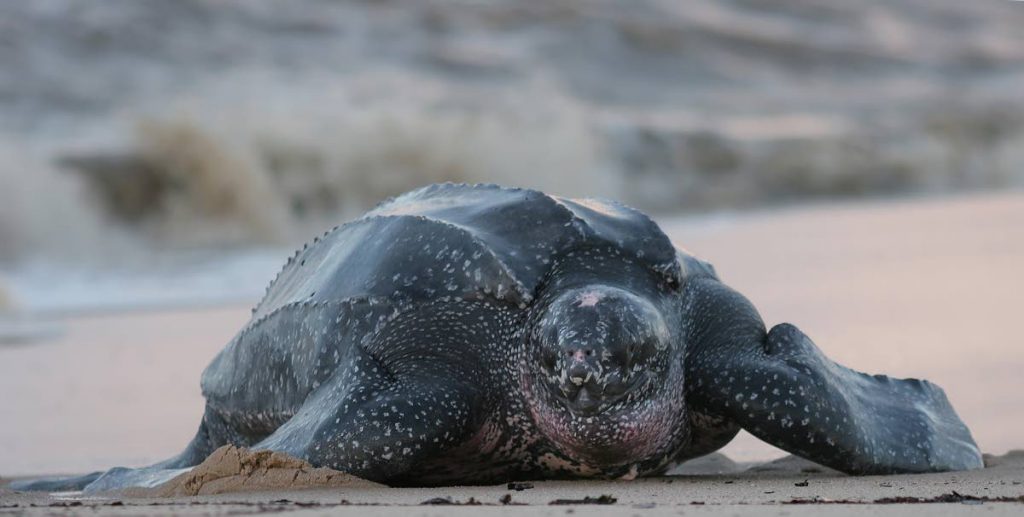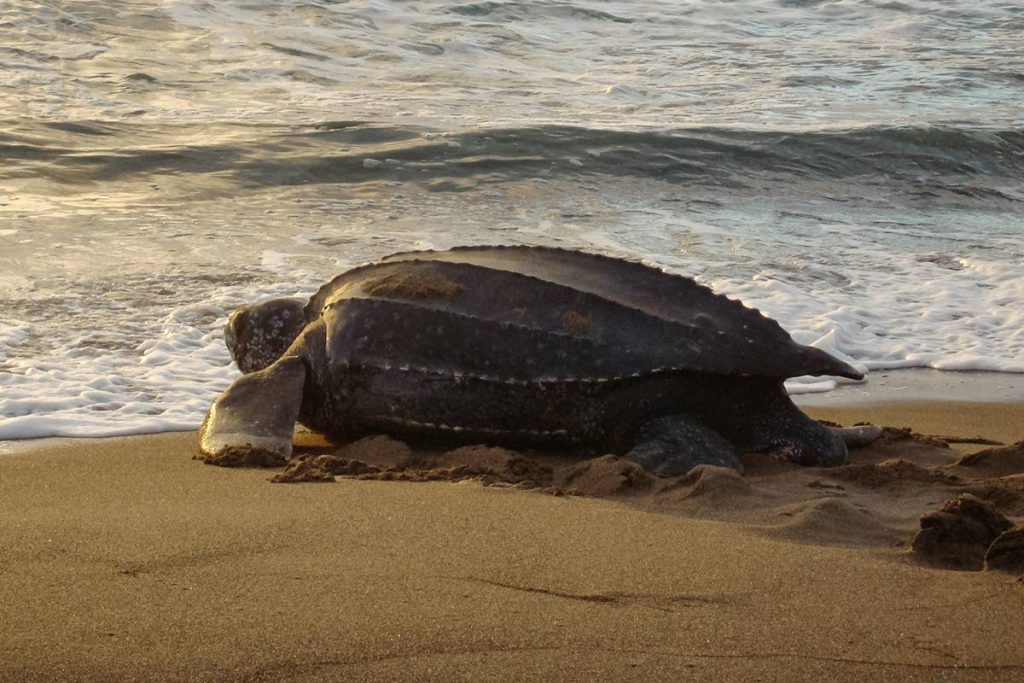Price of parenting

A couple of weekends ago I accompanied a group of relatives and friends to Matura to see leatherback turtles nesting. We were fortunate enough to witness seven different turtles at different phases of the very long process, albeit not in chronological sequence. I looked in amazement as one mama turtle ambled clumsily out of the water in search of the ideal place to lay her precious cargo. I got restless as another took her cool time to dig a deep hole into the damp sand into which she would deposit her eggs. I couldn't get enough of how a third strategically places herself over the hole and used her flippers to guard her unhatched babies, as they fell into the hole in which they would stay until they are ready to make their entrance into the cruel world in six to eight weeks. I admired how well three others took there time to camouflage the nest to protect the eggs from predators. And then I looked on as one, completing her delicate mission, quickly made her way back into the water not to return any time soon, with not even a look back.
I have often wondered about this, and I am convinced that at some point during their lifetime their paths will cross. I am even more convinced that they have to acknowledge their bond. For even though I may be inserting my "humanness" into the scenario, I think the bond between a parent and their offspring defies all reason -- be it human or animal. I have seen female dogs prepare to fight to the death if someone or something so much as look in the general direction of their litter. I have had a blackbird draw blood from the top of my head as I, unaware, walked past the area in which it was nesting. And I recall having to flee from a she goat and her kids many years ago as I roamed my grandmother's farm yard.

And these protective actions are certainly not limited to females. "In most species of birds, males and females take turns incubating the eggs and fetching insects for the fledglings. But among some large, flightless birds like emus and rheas, the male is often the sole keeper of the nest. Scientists now have evidence that such father-focused child care may represent the primordial avian programme, one that dates back to the birds’ storied ancestors, the dinosaurs," read an article in the New York times titled Paternal Bonds, Special and Strange.
Parenting, no matter what to what specie of animal you belong, is a serious matter. We go about our daily lives but, whether we want to or not, our thoughts are always with our children. I'm certain in the seconds before Candy Ann Mc Intyre succumbed to her gunshot wounds as she lay bleeding on the street on Thursday, her final thoughts was of her 12-year-old son whose graduation she had just attended. I'm sure she spared no thought for her pain, but instead focussed her attention on the agony of her son's screams as she was forced to abandon this life. Mc Intyre and her son were standing at the side of Santa Barbara Boulevard in Santa Cruz when she was fatally shot by what eyewitnesses said occupants of a white wagon.
Being a parent is a beautiful thing, but it comes at a price. Like the leatherback turtles, we take all precautions to safeguard the lives of our unborn children. We keep our doctor visits, we take our folic acid religiously, we eat clean and healthy. Unlike the leatherback turtles, once they are born we continue to take care of our babies until, well truth be told we never stop. But we know we can't always be there, so what do we do? Maybe mama leatherback has a point. She does what she can and allows life to do the rest. Whether we want to accept it or not, the world is a cruel place. The best chance our children may have is to learn in one way or another, how to navigate the many challenges that may come their way.


Comments
"Price of parenting"